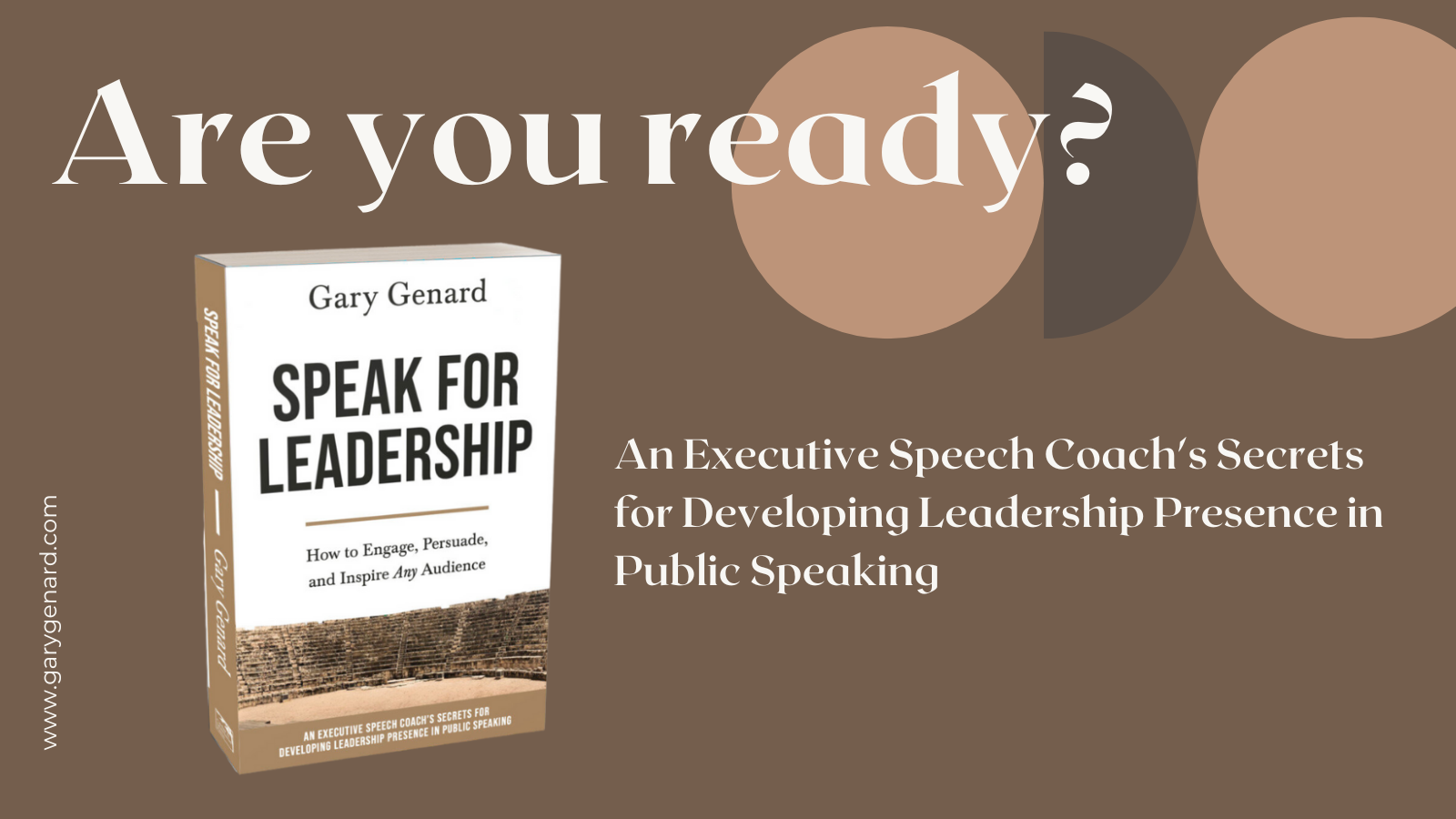Are your presentations sticky? That means being memorable and leading people to action! Here's how to get people to remember and act upon what you say.
Okay, it's almost time for your presentation. You're ready to unload on your audience a monumental stack of data to back up your message. Data from studies, spreadsheets, pie charts and bar graphs, earnings projections, and lots of statistics. There isn't a soul out there who will be able to dispute any of your points by the time you're finished!
Can I make a suggestion?
I wonder if you might consider how you're going to reach people emotionally.
If you want to influence people, you need to tap into the skills of a leader when you speak. Learn exactly how to do that in my book, Speak for Leadership. Find it here on Amazon.
Hitch a Ride on the Emotional River
The truth is, no one is going to remember an avalanche of facts and figures, or any accumulation of raw data that you stuff into your presentation. But they will absolutely remember how you made them feel. In an arena where you're squaring off against an entire world of speakers who can reach people in person and virtually, you need that edge.
Why allow your talks to sink without a trace? Raise the bar on your performance! Download my Free ebook, High-Impact Speaking: The Leader's Guide to Presenting With Influence.
Take something as simple as a three-day conference or national meeting. How many people will be delivering keynotes, poster sessions, and workshops over those three days? Plenty. I can't imagine any attendee saying, "Wow, I loved [YOUR NAME HERE]'s presentation because of those twelve scatter plots that were almost alike, but subtly different. Brilliant!"
I can hear that person saying: "[YOUR NAME]'s talk was wonderful. It gave me an entirely new perspective on the problem."
As I tell my clients: "There's an emotional river running under everything you say. You need to hitch a ride on it at the same time you tap into people's analytical abilities."
Want more tips and tricks for great speaking? You'll find 101 easy-to-learn skills for presentations, speeches and pitches in my book, How to Give a Speech. On Amazon.
Data Is Good. Emotions Connected to Data Is Sticky
Why is an emotional connection so important? It's because every decision we make has an emotional component. We know this from neuroscientists who have found that people with damage to their limbic system (the emotional part of the brain) can't make decisions.
Think about that for a moment. . . . Wait. I guess I should say, "Take that thought to heart!" It means that people can't adequately make up their mind, even when a decision seems entirely logical, and without any emotional component at all. Such as:
- Route A will take you 20 minutes to get from your house to work.
- Route B will take you an hour and five minutes.
Which route should you take to work?
It's all about speaking well, not planning well! Develop maximum stage presence! Download my Free resource, "How to Speak As a Leader: The Power of Performance."
Now, the implications of this for ALL of business speaking are profound. It really means that you have to consider the emotional component of all of the information you're imparting—however large or small that element may be. And it doesn't do any good to say, "Well, I'm discussing ROI concerning a five-year versus a 10-year lease on this land. I have to keep emotion out of it."
I would guess that for the people you're negotiating with, making maximum profits and feeling good about a business decision is, well, an emotional thing as well as hard-headed territory.
Remind Your Audience What It Means for Them
There's a simple way to float your raft in that emotional river, without thinking that you have to become a master storyteller. (But hey, if you make that happen, well, everything I'm saying here will be that much more true.)
It's this: tell your audience why what you're about to say matters to them. As you might expect, this should be done as close to the beginning of your presentation as possible. As soon as listeners are able to say to themselves, "Hey, this is about me. This is for my benefit!", they will listen much more closely to everything you say.
Incidentally, most speakers leave out this essential element of a presentation. For them, content is king, and they believe that when they pull the lever and unload that dumpster of data, the audience will have everything they need to make a decision.
Actually, at that point the audience will be buried, and their only thought may be to dig their way back up to some nice air to breathe. Also, that's not the way you want to make things sticky for them.
You should follow me on Twitter here.

Gary Genard is an actor, author, and expert in public speaking and overcoming speaking fear. His company, The Genard Method offers live 1:1 Zoom executive coaching and corporate group training worldwide. In 2022 for the ninth consecutive year, Gary has been ranked by Global Gurus as One of the World’s Top 30 Communication Professionals. He is the author of the Amazon Best-Seller How to Give a Speech. His second book, Fearless Speaking, was named in 2019 as "One of the 100 Best Confidence Books of All Time." His handbook for presenting in videoconferences, Speaking Virtually offers strategies and tools for developing virtual presence in online meetings. His latest book is Speak for Leadership: An Executive Speech Coach's Secrets for Developing Leadership Presence. Contact Gary here.
Main photo credit: StockSnap on Pixabay.





